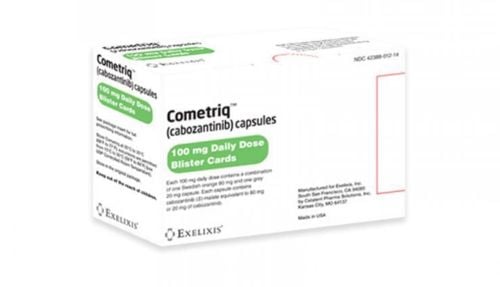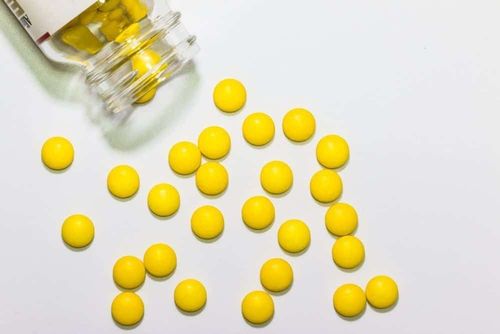This is an automatically translated article.
Diseases such as leukemia, lymphoma require a very long course of treatment with many different drugs, including drugs that slow down or prevent cancer cells from growing, Arranon.
1. What does Arranon cure?
Nelarabine interferes with DNA production, stopping cell growth and division, leading to slowing or stopping the growth of cancer cells. Because cancer cells divide faster and with less error correction than healthy cells, cancer cells are often more sensitive to this active ingredient. Nelarabine belongs to the class of adenosine deaminase inhibitors. Arranon contains the active ingredient Nelarabine and is indicated for the treatment of certain cancers such as leukemia and lymphoma.
2. How to use the drug Arranon
Arranon is used by infusing the drug Arranon through an intravenous line. The dose of Arranon is based on the patient's weight and the treating physician will decide how often the patient should take this medicine. Patients may receive additional intravenous fluids and medications to protect the kidneys prior to infusion of Arranon .
Active ingredient Nelarabine may interact with other drugs such as pentostatin - an adenosine deaminase inhibitor. Patients should talk to their doctor about all medications, vitamins, and supplements they are taking.
Patients or any relatives living with them should avoid using live or live attenuated vaccines while they are being treated with Arranon, including herpes zoster (Zostavax) to prevent shingles, polio vaccine polio, measles, flu vaccine (FluMist®), rotavirus and yellow fever vaccine...
3. Possible side effects when using Arranon
Patients can control the side effects of Arranon according to the doctor's instructions. Some of the most common and important side effects of Arranon:
3.1. Nervous disorders Serious neurological reactions have been associated with Arranon: Nelarabine may cause drowsiness (extreme drowsiness), dizziness, headache, confusion, convulsions and severe peripheral neuropathy ( from numbness to muscle weakness and paralysis). These side effects can be so severe that they can lead to coma and paralysis. If a patient is experiencing any of these symptoms, a doctor should be contacted immediately. Because of these side effects, patients should not operate machinery or drive a car while being treated with Arranon.
Peripheral neuropathy (numbness or tingling in the hands and/or feet) is a toxic disease affecting the nerves. It causes numbness or tingling in the hands and/or feet, usually when wearing socks or gloves. This condition may get worse with additional doses of Arranon . In some people, symptoms will slowly go away after stopping Arranon, but for some, it never goes away completely. Patients should let their doctor know if you experience numbness or tingling in your hands and/or feet, your doctor may need to adjust your dose of Arranon.
3.2. Low red blood cell count (anemia) Red blood cells carry oxygen to the tissues in the body, when the red blood cell count is low the patient may feel tired or weak. Especially when there are symptoms of shortness of breath or chest pain, it is necessary to notify the doctor immediately, if the red blood cell count is too low, the patient may receive a blood transfusion.
3.3. Low platelet count (thrombocytopenia) Platelets help with blood clotting, so a low platelet count increases the risk of bleeding with symptoms including nosebleeds, bleeding gums, blood in the water urine or stool of the patient, severe cases may require platelet transfusion. Therefore, in the course of daily activities, patients should pay special attention to:
Do not use razors; Stay away from contact sports that can cause injury or bleeding; Do not take aspirin, non-steroidal anti-inflammatory drugs (NSAIDs) ... as they can increase the risk of bleeding; Do not floss or toothpicks, use only a soft-bristled toothbrush. 3.4. Low white blood cell count (leukopenia) White blood cells are important in helping the body fight infections. While being treated with Arranon, the patient's white blood cell count may drop, putting the patient at higher risk of infection, so the patient should notify the doctor or nurse immediately of any symptoms. fever (temperature higher than 38°C), sore throat or cold, shortness of breath, cough, burning when urinating... In addition, patients need to pay attention to some daily habits such as:
Washing Frequent handing is the best way to prevent the spread of infection; Avoid large gatherings, especially away from people who are sick (for example, people with colds, fever, cough...); Keep all wounds such as cuts or scrapes clean; Shower daily and perform regular oral care. Do not cut the skin or cut the nails too deeply; Consult with your oncologist before scheduling a dental care appointment. 3.5. Feeling tired Fatigue is a very common feeling during cancer treatment, patients often feel exhausted and do not get better with rest. During cancer treatment and for some time afterward, patients may need to adjust their schedule to control fatigue, planning time to rest to conserve energy for activities. more important. Exercise can help patients fight fatigue.
3.6. Nausea, vomiting Medications to help control nausea and vomiting can be used along with dietary changes, avoiding things that can worsen symptoms such as foods that are too thick or oily fats/fats, spices or acids (lemon, tomato, orange).
3.7. Diarrhea Doctors may prescribe medications to reduce diarrhea. Also, try eating low-fiber foods like steamed rice and boiled or grilled chicken. Avoid fresh fruits, vegetables, whole grain breads, cereals and seeds. Soluble fiber is found in certain foods that can help with diarrhea including apple juice, bananas (ripe), canned fruit, oranges, boiled potatoes, white rice, and white flour products. , oatmeal, cream of rice, cream of wheat... Drink 8-10 glasses of caffeine-free liquid a day to prevent dehydration.
3.8. Constipation Some things patients can do to prevent or relieve constipation include getting more fiber in their diet (fruits and vegetables), drinking 8-10 glasses of non-alcoholic fluids a day, and staying active sports. Stool softeners 1 or 2 times a day can prevent constipation. If the patient does not have a bowel movement for 2-3 days, he or she should contact the doctor for recommendations on methods to relieve constipation.
3.9. Effects of Arranon on Reproductive Function Exposing the fetus to Arranon can cause birth defects, so patients should not become pregnant or father a child while taking Arranon. Birth control is needed during treatment with Arranon for women and for 3 months after treatment ends for men. Even if the patient's menstrual cycle has stopped or the patient believes that they are not producing sperm, the patient may still be able to become pregnant and conceive. In addition, people who are taking Arranon should not breast-feed.
Arranon is used to treat cancer. To ensure the effectiveness of treatment and avoid unwanted side effects, patients need to strictly follow the instructions of the doctor, professional pharmacist.
Follow Vinmec International General Hospital website to get more health, nutrition and beauty information to protect the health of yourself and your loved ones in your family.
Please dial HOTLINE for more information or register for an appointment HERE. Download MyVinmec app to make appointments faster and to manage your bookings easily.
Reference source: oncolink.org













